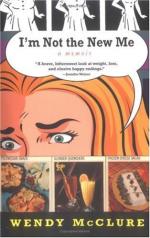“I can’t, and he can’t, I s’pose,” she said hopelessly; “and everything makes it worse. I wouldn’t care so much if he hadn’t fixed up the outside the way he did.”
“Oh, well now, don’t you fret. If I had money—but then I haven’t.”
“How have you lived sence you left home?” Armida inquired.
“Why, I’ve had a still, and made essence and peddled it out; but I sold the still to git money to come here, and it took all I had.”
“Well now, Theodore, I wish you’d stay here now you’ve got round again,” said Armida with great earnestness. “I’ve worried about you a sight. I’d be glad to have you, and Lucas would, I know.”
To spare a possible rebuff for Theodore, she ran out as she saw Lucas coming to the house to get his supper, and apprised him of his brother’s arrival, glad to find he shared her pleasure in it. As Lucas entered the room he shook hands with Theodore, saying, “How are ye?” to which Theodore responded with “How are you, Lucas?”
Theodore was a relief and pleasure to all the family. He observed a strict impartiality. If he split some kindling-wood for Armida, he churned for Lucas. If he took Armida’s old horse to be shod, he helped Lucas wash his sheep. He accepted everything, asking no questions after the first evening, but kept an observant eye on all.
Both Lucas and Armida had loved him since their earliest remembrance, and retained their old fondness for him now. He was a welcome guest on either side of the kitchen, and though when he announced of an evening that he was going visiting, and stepped across the line to the other side of the half from where he had been sitting, the owner of the side he honored felt pleased by the distinction, yet the one on the opposite side, though no longer (according to an understood law) joining in the conversation, still had the benefit of Theodore’s narratives.
[Illustration: EVENING IN THE DIVIDED KITCHEN.]
He was busy, too, in his way. He was indefatigable in berry-picking and herb-gathering, selling what Armida and Lucas did not wish, and showing not a little shrewdness. When he had laid a little money together he bought a still, and distilled essences of peppermint, wintergreen, and other sweet-smelling herbs and roots, and when a store was accumulated he filled a basket and departed on a peddling expedition, returning with money in his purse and a handkerchief or ribbon for Armida. Once he bought her a stuff gown, which she came near ruining by weeping over it, it was such a delight.
Lucas remonstrated. “I think you’re foolish, Theodore. Why don’t you spend your money on yourself? You’d a sight better get you a new coat.”
“I’d rather see Armida crying over that stuff,” said Theodore, “than have a dozen coats. Nobody knows Armida’s good looking, because she’s no good clothes. But she is, and when she gets that dress made up and puts it on with that pink ribbon I bought her last time, she’ll look as pretty as a pink.”




